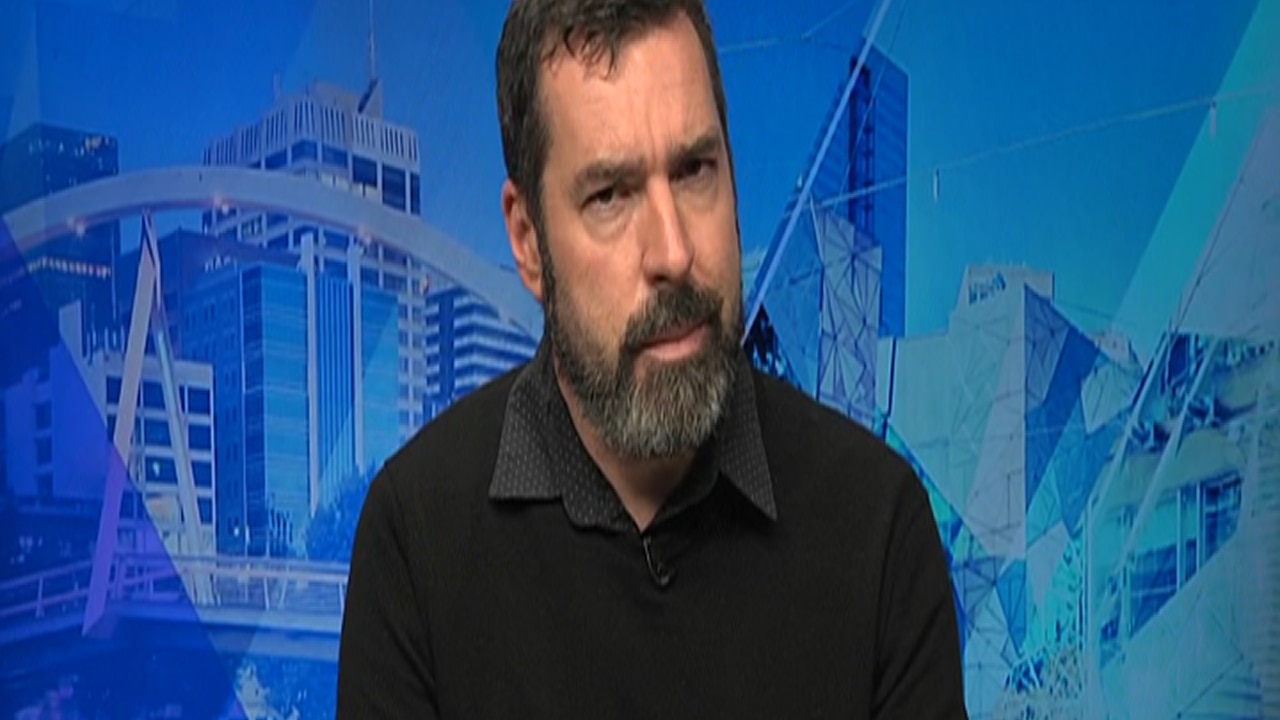Banking royal commission: AMP execs rue long dark night of the soul
In the night of the long knives at AMP, careers were ended, reputations trashed and wall-to-wall reviews set up.

In the night of the long knives at AMP, careers were ended, reputations trashed and wall-to-wall reviews set up, among them an enterprise-wide cultural audit and an enterprise-wide review of culture.
The difference between them is unclear, but full marks to the board for at least appearing to do something in response to the waves of trauma crashing against the 169-year-old company’s Circular Quay tower.
On Thursday, in the 25th-floor boardroom overlooking Sydney Harbour, controversial AMP chairwoman Catherine Brenner, her own tenure hanging by a thread, methodically checked off the names as the meeting went into the early evening.
Chief executive Craig Meller, who had been due to step down before year’s end, was sacked a second time. Out the door.
In the door, as acting chief executive, came non-executive director and former IAG boss Mike Wilkins.
Group general counsel and, critically, former Clayton Utz partner, Brian Salter, was sent on leave. Out the door.
At the end of it all, or at the end of the beginning of it all, a wizened observer of the $4.6 billion-a-year financial advice industry likened it to “an old man’s arsehole”. “It needs to be inspected regularly by professionals, because the consequences of failure are horrendous and smelly,” he says.
Wilkins yesterday took the reins at AMP and immediately pulled his 10-person leadership team into a huddle, saying he wanted to work with employees to restore pride and customer faith in the institution. He spoke earnestly about the internal reviews, some of them already under way, and other business initiatives. The advice division and its 2800 financial advisers was being dramatically overhauled, with much tighter controls and oversight.
Wilkins then turned his attention to the next management layer down, hosting a call for AMP executives around the world and telling them it was time for leaders to step up and accept the challenge to reinvigorate the tarnished icon.

But oh for the sweet, innocent days of earlier this week when AMP was nothing more than an underperforming wealth management company seeking a successor to Meller, a reserved but decent man who had failed to satisfy Brenner’s demand for results.
On Monday afternoon, AMP’s avuncular head of advice, Jack Regan, took the stand in the financial services royal commission.
Regan, sent in by Meller to clean up the advice mess in January last year, was well prepped on his chosen topic of fees for no service — a deeply embarrassing but widespread practice among the big four banks and AMP.
Senior counsel assisting, Michael Hodge, the so-called “baby-faced silk”, came in from such a long run that murmurs of protest rippled through a public gallery more used to the forensic style of Hodge’s colleague, Rowena “Shock and Awe” Orr. But on Tuesday morning, with disarming innocence, Hodge asked Regan if a chain of emails between a number of AMP employees was “one of the documents that caused such consternation in May of 2017”.
The dam was about to break spectacularly. Until then, AMP had only a cameo role in the fees-for-no-service scandal, accounting for $4.7 million of $222m paid in compensation to victims who had shelled out for a service, such as an annual review of investment plans, that was never provided.
The company, though, was harbouring a deep secret — so well hidden it completely blindsided the rest of the industry, and so shocking that it will have reverberations for years.
In a deeply apologetic note to AMP’s licensed advisers, dated Thursday, Meller described a business practice in which AMP had continued to charge fees for 90 days while clients were transitioning between advisers.
The bombshell, elicited from Regan in the royal commission, was that AMP had misled the Australian Securities & Investments Commission more than 20 times in its reporting of the scandal, and had workshopped with Clayton Utz 25 drafts of the law firm’s “independent” review.
While Brenner has survived so far, she is implicated in the dealings with Clayton Utz, as is Salter, the AMP group general counsel and former partner at the law firm.
On October 11 last year, after receiving what was supposed to be the final Clayton Utz report, Salter emailed the partner overseeing the project, Nick Mavrakis, alerting him to comments by Brenner.

Brenner, he said, would like to see the comments included in the report to go to ASIC the following Monday. He made a further point: “Include a statement to the effect that Craig Meller was unaware of the practices or their illegality.”
People familiar with the issue say there’s a further email exchange between Salter and Mavrakis that could prove problematic for Brenner.
Four days later, on October 15, Salter proposed a change to the words used by Clayton Utz to confirm Meller’s lack of awareness of the business practice that led to the scandal, and internal advice that concluded it was unlawful to impose fees without providing the service. The suggested wording was: “This is supported by our investigation and we came to the same conclusion.”
One issue will be whether Brenner knew of that exchange.
AMP declined to comment, a spokesperson saying the company would address questions raised about the independence of the Clayton Utz report in a submission to the royal commission.
Any notion that the law firm’s report for AMP could be seen as independent was dismissed yesterday, if only because of the long history between Salter and his old law firm. On top of that, there was the extensive to-ing and fro-ing between AMP and the law firm.
“I’m not even sure the report had to be independent, but to say it was independent goes from the sublime to the ridiculous,” one source said. “Why did it have to be Clayton Utz? Why would you present something as independent when clearly it’s not? Who is fooling who here?”
It matters because the Corporations Act says making statements that are false and misleading in a “material” way can incur a penalty of up to $42,000 and/or up to five years’ jail. Scott Morrison warned on Wednesday that the AMP debacle could see people doing jail time.
After repeatedly birching the financial services sector, the Treasurer yesterday unveiled a punitive penalty regime for rogue industry players, including fines of up to $210 million or 10 per cent of annual turnover for serious misconduct. “The punishment must always fit the crime and we must not forget that these are not victimless crimes,” he said.
Morrison, however, pulled back from his more extreme rhetoric, stressing there was a difference between the culture of organisations and the overall stability of the financial system.
In the meantime, Brenner, who is also a director of Boral and Coca-Cola Amatil, faces the biggest fight of her career as a professional company director.
Two years ago she succeeded Simon McKeon, whose abrupt, unexplained resignation came just two weeks before the 2016 annual meeting. This week’s events throw new light on the background to his departure, given AMP lodged its breach report with ASIC in relation to fees for no service in May 2015.
Although both are former investment bankers, McKeon and Brenner were never close. Sources said yesterday that McKeon’s preferred successor was non-executive director Trevor Matthews, who held insurance chief executive roles around the world.
McKeon, they said, used to coach Meller to be more accepting of the limelight, in contrast to Brenner, who has been publicly confrontational.
In her first week as AMP chairwoman, she backed Meller’s strategy, but said: “I just want to get Craig and his team to do it a little bit faster, if possible.” Later that year, she said: “I can assure you that Craig understands that he is under pressure from the board, in particular, but also from the external market and that he needs to accelerate the performance and the delivery of the strategy.”
The more you look at it, the more you realise McKeon’s judgment call on AMP, almost two years ago to the day, has passed the test of time.
ASIC is now conducting a full-scale probe into AMP’s conduct.
The watchdog has examined 18 witnesses and taken possession of many thousands of documents.
Unlike others, McKeon, a former Macquarie investment banker and 2011 Australian of the Year, has emerged from his AMP dalliance with his reputation intact.






